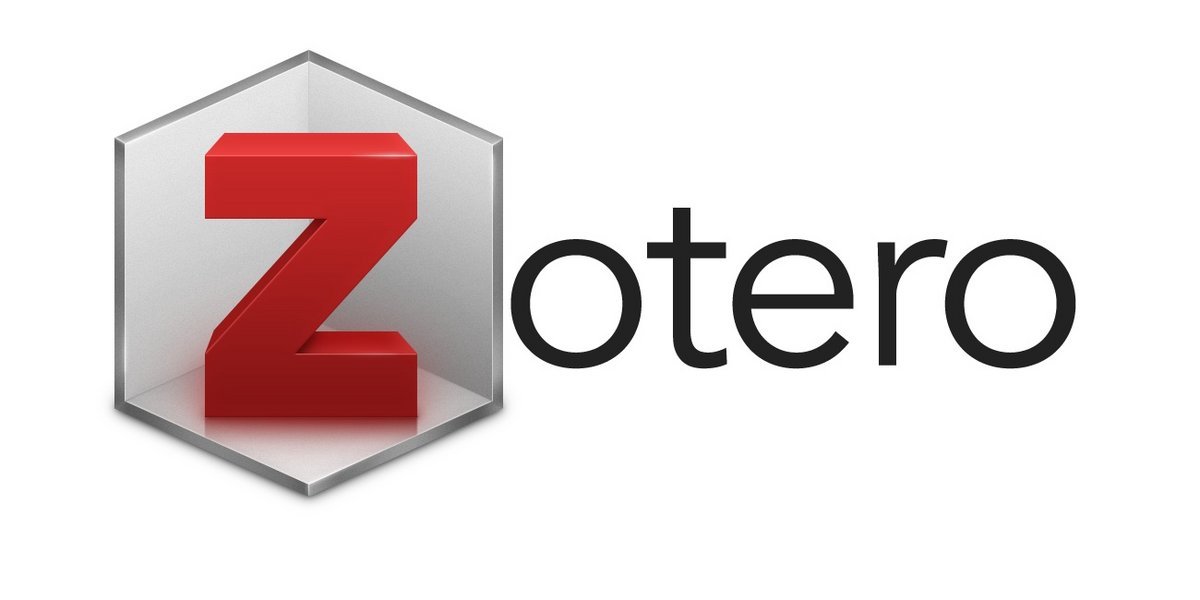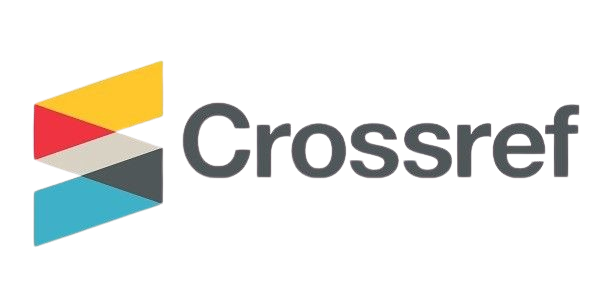Kesulitan belajar dalam bingkai teori Piaget pada siswa SMP usia 13–15 tahun: Systematic literature review
Learning difficulties within the framework of Piaget’s theory among junior high school students aged 13–15 years: A systematic literature review
DOI:
https://doi.org/10.70757/kharismatik.v3i2.100Keywords:
cognitive development, learning difficulties, Piagetian theoryAbstract
This systematic literature review addresses the crucial challenge of identifying learning difficulties among junior high school students aged 13-15 through the lens of Piaget's cognitive development theory. The study aims to analyze manifestations of learning difficulties, identify inhibiting factors, and formulate effective intervention strategies based on Piagetian principles. Using the PRISMA 2020 guideline, we conducted a comprehensive analysis of empirical studies from Scopus, Web of Science, ERIC, and other academic databases published between 2005-2025. The results reveal consistent patterns of learning difficulties characterized by dependency on concrete representations, limited abstract reasoning capabilities, and cognitive regression phenomena across mathematics and science subjects. Furthermore, the study identifies significant discrepancies between instructional methods and students' cognitive stages as primary contributing factors. The research concludes by proposing a diagnostic matrix prototype that bridges theoretical Piagetian constructs with practical classroom applications. The findings emphasize the urgent need for cognitive stage-appropriate teaching strategies and have substantial implications for curriculum development, teacher training programs, and educational policy formulation in basic education.
References
Adeduyigbe, A. M., & Okeke, U. K. (2025). Instructional design considerations: Cognitive development and physics comprehension in secondary education. International Journal of Studies in Psychology, 5(2), 1–4. https://doi.org/10.38140/ijspsy.v5i1.1598
Adeoye, I. F. (2020). Chemistry Students’ Cognitive Operations and Achievement in Conceptual and Computational Knowledge in Inquiry-based Instructions. International Journal of Innovative Research and Development, 9(7). https://doi.org/10.24940/ijird/2020/v9/i7/JUL20014
Aeni, N., Budiamin, A., & Muhtar, F. (2023). Implementation of Learning Theory of Constructivism Perspective Jean Piaget (1896-1980) in PAI Learning at SDI Bilal Bin Robah Batulayar Village, Batulayar District. Edumaspul: Jurnal Pendidikan, 7(2), 5219–5229. https://doi.org/10.33487/edumaspul.v7i2.7163
Anderman, E. M., Ormrod, J. E., & Anderman, L. H. (2024). Educational psychology: Developing learners (Eleventh edition). Pearson.
Anggraeni, N. D., Kumala Dwi Alviana, W., Fitriya Wahyuni, D., Kusuma Ainurrosyidah, L. D., Mahardika, I. K., Sutarto, S., & Wicaksono, I. (2024). Analisis Perkembangan Peserta Didik Menurut Teori Jean Piaget Dan Pengimplementasianya Pada Pembelajaran Ipa Smp. EDUSAINTEK: Jurnal Pendidikan, Sains Dan Teknologi, 11(3), 1503–1519. https://doi.org/10.47668/edusaintek.v11i3.1252
Babai, R. (2010). Piagetian Cognitive Level And The Tendency To Use Intuitive Rules When Solving Comparison Tasks. International Journal of Science and Mathematics Education, 8(2), 203–221. https://doi.org/10.1007/s10763-009-9170-2
Basannang, S. M., Darmayanti, N., & Lestari, T. (2024). The Effect Of Operational Audit And Internal Control On Performance. Journal of Economic and Economic Policy, 1(4), 78–87. https://doi.org/10.61796/ijecep.v1i4.48
Borich, G. D. (2013). Effective Teaching Methods: Research-Based Practice. Pearson Education Canada. https://books.google.co.id/books?id=XSGjnQEACAAJ
Borich, G. D., & Martin, D. B. (1999). Observation Skills for Effective Teaching. Merrill. https://books.google.co.id/books?id=eZ4yQAAACAAJ
Carvalho, A. D. S. M. D., Amorim, V. C. P. D., Silva, D. D. A., Altoe, J. D., Cellin, J., Kaminski, J. S. C., Gois, A. M., & Melanias, P. R. P. (2023). The construction of knowledge from Piaget’s perspective. In UNITING KNOWLEDGE INTEGRATED SCIENTIFIC RESEARCH FOR GLOBAL DEVELOPMENT (1st edn). Seven Editora. https://doi.org/10.56238/uniknowindevolp-019
Eggen, P. D., & Kauchak, D. P. (2015). Educational Psychology: Windows on Classrooms. Pearson. https://books.google.co.id/books?id=ydtLjgEACAAJ
Güven, U., Karaçam, S., & Sezer, B. B. (2022). Factors Affecting Course Attendance In Distance Education. Nevşehir Hacı Bektaş Veli Üniversitesi SBE Dergisi, 12(4), 1962–1977. https://doi.org/10.30783/nevsosbilen.1065288
Halid, L. I. (2024). Constructivist Approach to Language Learning: Linking Piaget’s Theory to Modern Educational Practice. INTERACTION: Jurnal Pendidikan Bahasa, 11(2), 306–327. https://doi.org/10.36232/interactionjournal.v11i2.33
Hoy, A. W., & Usher, E. L. (2024). Educational psychology (Active learning edition. Fifteenth edition. Rental edition). Pearson.
Jadidah, I. T., Annisah, R., Melinda, M., Padiman, P., & Anggilin, K. (2023). Analysis of the Implications of Learning Elementary Mathematics According to Jean Piaget’s Theory. Journal Of Dehasen Educational Review, 4(02), 139–144. https://doi.org/10.33258/joder.v4i02.4256
Kamila, N. G., Nindiasari, H., Rizky, E., Mita, M., R, N. F., & Makarim, N. (2022). Analisis Tahap Perkembangan Kognitif Matematika Siswa Kelas Viii Smp Negeri 1 Citeureup Dengan Instrumen Test Of Logical Operations (Tlo). Wilangan: Jurnal Inovasi Dan Riset Pendidikan Matematika, 3(3), 195. https://doi.org/10.56704/jirpm.v3i3.13334
Kieffer, M. J., Mancilla-Martinez, J., & Logan, J. K. (2021). Executive functions and English reading comprehension growth in Spanish-English bilingual adolescents. Journal of Applied Developmental Psychology, 73, 101238. https://doi.org/10.1016/j.appdev.2021.101238
Kosasih, N. Z., Supratman, S., & Hermanto, R. (2019). Analisis Kesalahan Peserta Didik Dalam Menyelesaikan Soal Pemecahan Masalah Pada Materi Aljabar Berdasarkan Teori Jean Piaget. Prosiding Seminar Nasional & Call For Papers Program Studi Magister Pendidikan Matematika Universitas Siliwangi.
Kuther, T. L. (2022). Lifespan Development: Lives in Context. SAGE Publications. https://books.google.co.id/books?id=R29KEAAAQBAJ
Martínez-González, F. E., Macías-Brambila, H., Rodríguez-Jiménez, L. M., & López-Laguna, A. B. (2024). Per-Q as an intervention project in virtual education for virtual learning environments. Revista de Educación Básica. https://doi.org/10.35429/jbe.2024.8.19.1.11
Maurya, R., & Khan, F. (2021). Cognitive Development in Children with Autism Spectrum Disorder: A Piaget’s Cognitive Developmental Approach. Mind and Society, 10(03–04), 117–124. https://doi.org/10.56011/mind-mri-103-420224
Mulya, Z. A., Putri, I. K. K., Chadjijah, S., & Hariyanto, T. (2024). Strategi Inovatif Mengatasi Kesulitan Belajar Siswa SMP: Perspektif Kognitif Piaget. Kharismatik : Jurnal Ilmu Pendidikan, 2(2), 108–119. https://doi.org/10.70757/kharismatik.v2i2.94
Orlich, D. C., Harder, R. J., Callahan, R. C., Trevisan, M. S., & Brown, A. H. (2012). Teaching Strategies: A Guide to Effective Instruction. Cengage Learning. https://books.google.co.id/books?id=DQ0KAAAAQBAJ
Putri, I. E., & Abrianto, D. (2024). Metode Pembelajaran Dalam Pengelolaan Kelas Berbasis Karakter Plegmatis Pada Siswa Sekolah Menengah Kejuruan (SMK). G-Couns: Jurnal Bimbingan Dan Konseling, 9(2), 871–886. https://doi.org/10.31316/g-couns.v9i2.6131
Qodariah, L., & Aditya, A. (2025). Media Digital Monopoli untuk Meningkatkan Pembelajaran Sejarah Kelas X di SMA Negeri 19 Bekasi. Jurnal Humanitas: Katalisator Perubahan Dan Inovator Pendidikan, 11(3), 624–637. https://doi.org/10.29408/jhm.v11i3.30730
Ratni, N. P. (2024). Digital Empowerment in English Language Teaching (Perspective of Jean Piaget-Learning Theory). Proceedings of International Conference on Education, 2(1), 359–369. https://doi.org/10.32672/pice.v2i1.1381
Sadiyah, Sista Liana, & Mufaro’ah. (2024). Studi Tentang Kesulitan Fokus Anak dalam Pembelajaran: Tinjauan Psikologis dan Edukatif. PIJAR: Jurnal Pendidikan Dan Pengajaran, 3(1), 26–33. https://doi.org/10.58540/pijar.v3i1.646
Santrock, J. W., & Roehrig, A. D. (2024). Educational psychology (Eighth edition. International student edition). McGraw Hill.
Schunk, D. H. (2013). Learning Theories: An Educational Perspective: Pearson New International Edition. Pearson Education. https://books.google.co.id/books?id=Aq2pBwAAQBAJ
Shukri, A. R. M., & Toran, H. (2025). Jean Piaget Cognitive Learning Theory and Student Teaching Strategies with Special Education Needs. Special Education [SE], 3(1), e0033. https://doi.org/10.59055/se.v3i1.41
Slavin, R. E. (2021). Educational Psychology: Theory and Practice. Pearson. https://books.google.co.id/books?id=tEJY0QEACAAJ
Sternberg, R. (2005). Cognitive Psychology. Cengage Learning. https://books.google.co.id/books?id=WNss-44HFUQC
Turner, M., & Holdsworth, S. (2023). Developing resilience: Examining the protective factors of early career construction professionals. Construction Management and Economics, 41(10), 805–819. https://doi.org/10.1080/01446193.2023.2208238
Živković-Rančić, Ž., & Todorović, J. (2022). Parenting styles as predictors of formal operational thinking in adolescents. Nastava i Vaspitanje, 71(2), 199–213. https://doi.org/10.5937/nasvas2202199Z
Downloads
Published
How to Cite
Issue
Section
Citation Check
License

This work is licensed under a Creative Commons Attribution-ShareAlike 4.0 International License.
Authors who publish articles in Kharismatik agree to the following terms:
- Authors retain copyright of the article and grant the journal right of first publication with the work simultaneously licensed under a CC-BY-SA or The Creative Commons Attribution–ShareAlike 4.0.
- Authors are able to enter into separate, additional contractual arrangements for the non-exclusive distribution of the journal's published version of the work (e.g., post it to an institutional repository or publish it in a book), with an acknowledgment of its initial publication in this journal.
- Authors are permitted and encouraged to post their work online (e.g., in institutional repositories or on their website) prior to and during the submission process, as it can lead to productive exchanges, as well as earlier and greater citation of published work (See The Effect of Open Access).













